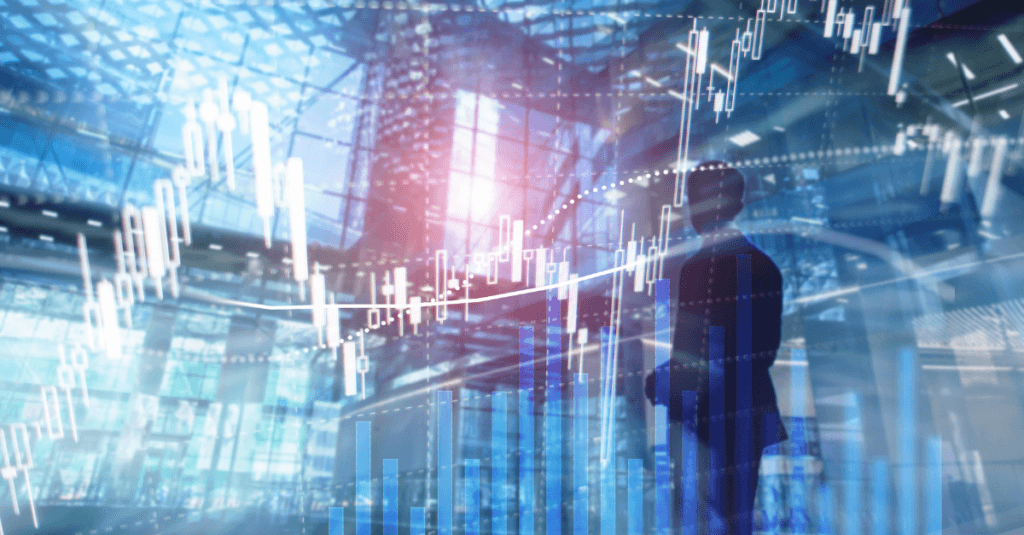When you hear about the forex market, you might think it’s a place for the banks and big institutions to trade currencies. But anyone can trade in the forex market, and that includes you. You probably have seen the term ‘forex’ somewhere online. Whether it was from an advertisement or article or someone who trades the market, this is because forex (also known as foreign exchange) is a vast global market for trading currencies.
The Forex market is unique because of its trading volume, which averages $5 trillion per day worldwide! This is larger than all other markets combined! The main benefit of trading in this market is that there is no minimum amount required to start trading, unlike stocks or bonds. You can start with any amount, even $1, with a micro-account! In this article, you’ll learn everything you need to know.
The Forex Market Defined
The forex market is a global, decentralized marketplace where financial establishments, businesses, and individuals exchange currencies at floating rates. Forex trading is the simultaneous buying of one currency and selling of another. Currencies are traded through a broker or dealer in pairs. For example, the euro and the U.S. dollar (EUR/USD) or the British pound and the Japanese yen (GBP/JPY). The foreign exchange market determines how much one country’s currency is worth in another currency.
The forex market comprises banks, commercial companies, central banks, investment management firms, hedge funds, and retail forex brokers and investors around the world. The forex market is open 24 hours a day, five days a week, across major financial centres across the globe. This means that you can buy or sell currencies anytime during the day. However, it’s important to note that the forex market is volatile. Several factors can contribute to price movements, including geopolitical events and announcements by central banks.
Spot Market Vs. Futures Market
The spot market is where currencies are bought and sold at their current price. According to the Interbank market, the most popular trading platform is MetaTrader 4. It’s a leading choice for beginners and professionals alike. The forex spot market offers tremendous liquidity, which means you can trade as much as possible.
If you want to buy a currency pair, you do so at the offer price, which is slightly above the market price; if you sell a pair, you do so at the bid price slightly below the market price. The difference between these two prices is called the spread — the commission that your broker charges you to execute your trade. If you’re buying EUR/USD and selling USD/CHF, you’re buying euros with U.S. dollars and selling U.S. dollars for Swiss francs. In this case, your broker will make money on the difference between these two spreads.
The difference between the spot market and the forward and futures markets is that the spot market is for the currency you want to purchase now, whereas the forward and futures markets are for a currency you want to purchase in the future. With futures trading, it’s all about contracts. You purchase a contract to sell or buy a certain amount of currency at a specific price by a certain date in the future. Your profit or loss is determined by whether or not you close out your position before expiration (closing out a futures position can be done at any time up until its expiration). In summary, futures trading tends to be more popular among institutional investors, while spot forex tends to be more popular among retail traders.
The Benefits of Trading Forex
There are many advantages and benefits to trading forex. Here’s a brief overview of why now is a
great time to start trading:
- Low minimum account balances. Unlike most other types of trading and investment, the initial account balance required to trade forex is relatively low. That means you can open an account with a small amount of money. This also makes it easier to get started since you don’t need a lot of capital to start trading.
- No commissions or fees. There are no extra fees or commissions for forex trading. Every cost is built into the currency’s price on the platform, including spreads, swaps, and rollovers. This means you know what you’ll pay when you place a trade, and there are no hidden fees down the road.
- No special qualifications are needed for forex traders. Anyone can begin trading forex right away, as long as they have enough money in their account to cover margin requirements.
- Forex is traded using leverage. This means that you can use a small amount of capital to open a more significant position. For example, if you trade currency with leverage of 1:10, you could effectively trade ten times the amount you have deposited in your account. If you deposit $1,000, you will have $10,000 in buying power. This is the same as trading on margin but without having the hassle of having to fund and manage your margin account.
Final Thoughts
Trading on the forex market can be a great way to make money – if you know how. For more information about forex trading, check out our forex educational resources. For information about the best forex brokers in Nigeria, check out our broker reviews.
